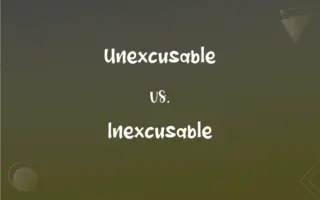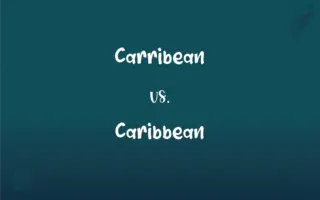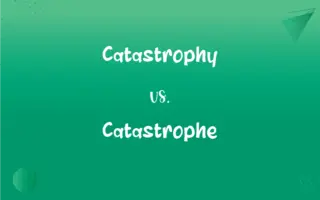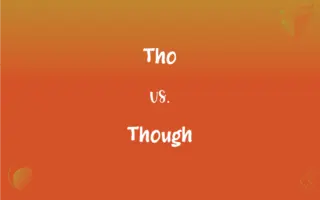Tipical vs. Typical: Mastering the Correct Spelling
Edited by Aimie Carlson || By Harlon Moss || Updated on March 8, 2024
"Tipical" is an incorrect spelling; the correct spelling is "typical," meaning representative of a type, group, or class.

Which is correct: Tipical or Typical
How to spell Typical?

Tipical is Incorrect

Typical is Correct
ADVERTISEMENT
Key Differences
The spelling "typical" aligns with "typography," both starting with "typ-."
"Typical" has "ty-" like "type," representing a characteristic or representative nature.
The "i" in "typical" is like "individual," emphasizing a member of a group.
"Typical" has a similar pattern to "typist," both beginning with "typ-."
Remember "typical" by associating the 'y' with "yes," affirming its standard nature.
ADVERTISEMENT
Correct usage of Typical
This is a tipical example of Roman architecture.
This is a typical example of Roman architecture.
The weather is more tipical for summer, not spring.
The weather is more typical for summer, not spring.
The tipical symptoms of the flu include fever and cough.
The typical symptoms of the flu include fever and cough.
She had a tipical reaction to the news.
She had a typical reaction to the news.
It's not tipical for him to be late.
It's not typical for him to be late.
Typical Definitions
Often used to describe a common or usual state.
It was a typical sunny day in California.
Representative of a specific group, class, or type.
The robin is a typical example of a songbird.
Describing a characteristic or expected behavior or occurrence.
Her reaction was typical of someone in her situation.
Can imply something being ordinary or standard.
The meeting followed the typical agenda.
Also used to describe something habitual or customary.
His punctuality was typical for him.
Exhibiting the qualities, traits, or characteristics that identify a kind, class, group, or category
A typical suburban community.
Of or relating to a representative specimen; characteristic or distinctive.
Typical Sentences
On a typical day, I wake up at 7 AM.
A typical breakfast in my country includes eggs and toast.
The meeting followed the typical format we're used to.
That's the typical response I expected.
The weather today is not typical for this time of year.
The garden is filled with plants typical of the region.
The typical lifespan of this device is about two years.
The movie's plot was very typical and predictable.
He gave a typical excuse for being late.
It's typical for him to forget his keys.
That's typical of him, always trying to help.
The results were typical for such an experiment.
In a typical year, we travel at least once.
A typical workweek is about 40 hours.
He's in his typical mood today, very cheerful.
The ingredients used are typical for this recipe.
His behavior is typical among teenagers.
It was a typical performance, nothing extraordinary.
A typical reaction to this medication is drowsiness.
This is a typical example of her excellent work.
Her attire was quite typical for a formal event.
You'll find these birds in areas typical for their species.
It's typical to feel nervous before a big presentation.
For a typical student, this course can be challenging.
The car's fuel efficiency is typical for its model.
Typical Idioms & Phrases
Anything but typical
Not ordinary or usual; far from what is considered normal.
The design of the building is anything but typical; it's truly unique.
A typical example
A representation that is characteristic of all items of the same category.
This painting is a typical example of the artist's early work.
Typical of
Characteristic of someone or something.
Forgetting his wallet at home was typical of Jake.
Be typical of
To exemplify the usual characteristics of something.
The warm welcome I received is typical of the hospitality in this country.
Less than typical
Not conforming to what is generally done or believed.
Her approach to teaching is less than typical but very effective.
Typical for
Commonly seen or expected in a particular context.
Snow is typical for this region in winter.
So typical
Used to express that something is very characteristic or expected based on previous behavior or patterns.
He's late again, so typical!
Out of the typical
Beyond what is ordinary or standard.
This solution was out of the typical, solving the problem creatively.
Typically speaking
Generally or in most cases.
Typically speaking, the weather is milder this time of year.
It would be typical
Suggesting that it would not be surprising if something happened in a way that is consistent with known patterns.
It would be typical for it to rain right when we start our picnic.
Not your typical
Used to describe someone or something that does not fit the usual characteristics.
She's not your typical CEO; she's very approachable and down-to-earth.
That's typical!
An expression used to comment on a situation that is unsurprising because it happens often.
The meeting started late, that's typical!
The typical thing about
The aspect that is most characteristic or expected of something.
The typical thing about his writing is his unique sense of humor.
Far from typical
Very unusual or atypical.
His talent is far from typical; he's a prodigy.
FAQs
What is the root word of typical?
The root word of "typical" is the Greek "typos."
Why is it called typical?
"Typical" comes from the Greek word "typos," meaning a model or form.
Which vowel is used before typical?
Typically, "a" is used before "typical" (as in "a typical example").
What is the singular form of typical?
"Typical" is an adjective and doesn't have a singular or plural form.
What is the plural form of typical?
As an adjective, "typical" remains the same in plural usage.
Which conjunction is used with typical?
Conjunctions such as "and," "but," or "or" can be used with "typical."
What is the verb form of typical?
There is no direct verb form for "typical"; it's an adjective.
What is the pronunciation of typical?
Typical is pronounced as \ˈti-pi-kəl.
Is typical an adverb?
No, "typical" is not an adverb.
Which preposition is used with typical?
Prepositions like "of," "for," and "in" are commonly used with "typical."
Is typical a noun or adjective?
"Typical" is an adjective.
Is typical an abstract noun?
No, "typical" is an adjective, not a noun.
Is typical a vowel or consonant?
"Typical" is an adjective, not a vowel or consonant.
Is the typical term a metaphor?
"Typical" can be used metaphorically but usually describes common characteristics.
What is a stressed syllable in typical?
The stressed syllable in "typical" is "typ."
What is another term for typical?
Another term could be "characteristic" or "standard."
What is the opposite of typical?
"Atypical" or "unusual" can be considered opposites.
Which determiner is used with typical?
Determiners like "a," "the," and "this" can be used with "typical."
Which article is used with typical?
Both "a" and "the" can be used with "typical," depending on context.
Is typical a negative or positive word?
"Typical" is neutral; its connotation depends on the context.
How do we divide typical into syllables?
"Typical" is divided as typ-i-cal.
What is the second form of typical?
There is no second form; "typical" remains unchanged in various contexts.
Is typical a countable noun?
"Typical" is not a noun; it’s an adjective.
Is the word typical imperative?
No, "typical" is not used as an imperative; it's an adjective.
What is the first form of typical?
The first form is "typical" (as an adjective).
What is the third form of typical?
Similarly, there is no third form for "typical."
How is typical used in a sentence?
"He arrived late, which was typical for him."
Is typical a collective noun?
No, "typical" is not a collective noun.
How many syllables are in typical?
There are three syllables in "typical."
What part of speech is typical?
"Typical" is an adjective.
About Author
Written by
Harlon MossHarlon is a seasoned quality moderator and accomplished content writer for Difference Wiki. An alumnus of the prestigious University of California, he earned his degree in Computer Science. Leveraging his academic background, Harlon brings a meticulous and informed perspective to his work, ensuring content accuracy and excellence.
Edited by
Aimie CarlsonAimie Carlson, holding a master's degree in English literature, is a fervent English language enthusiast. She lends her writing talents to Difference Wiki, a prominent website that specializes in comparisons, offering readers insightful analyses that both captivate and inform.


























































